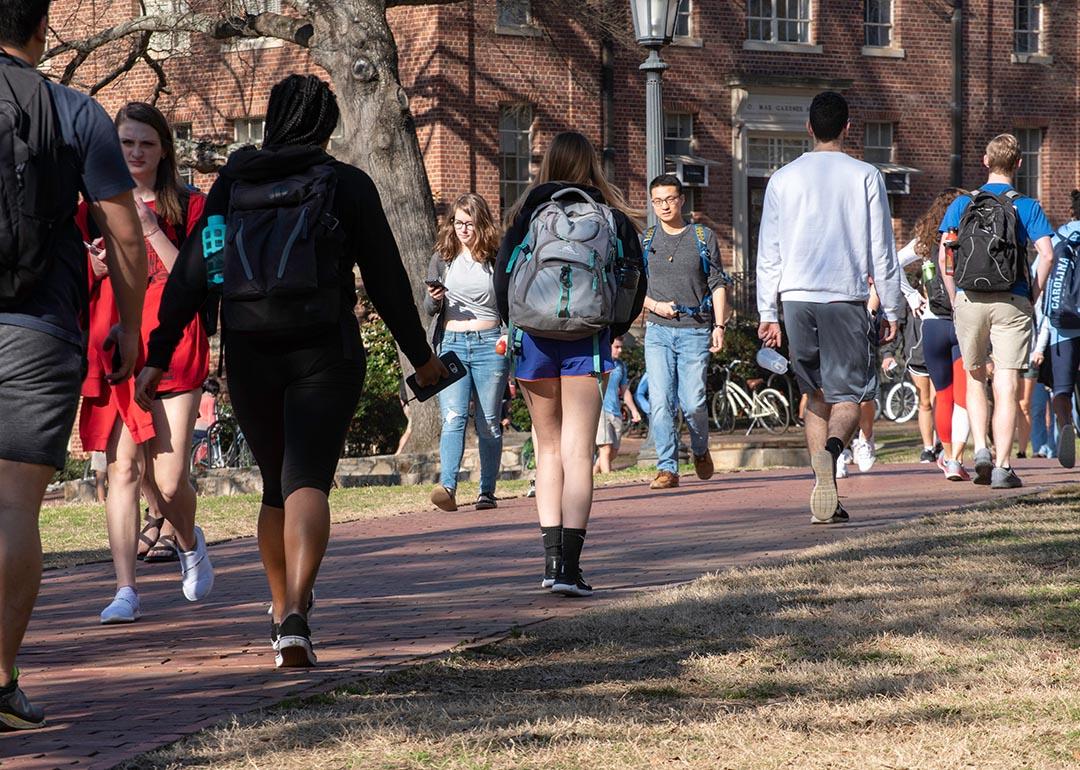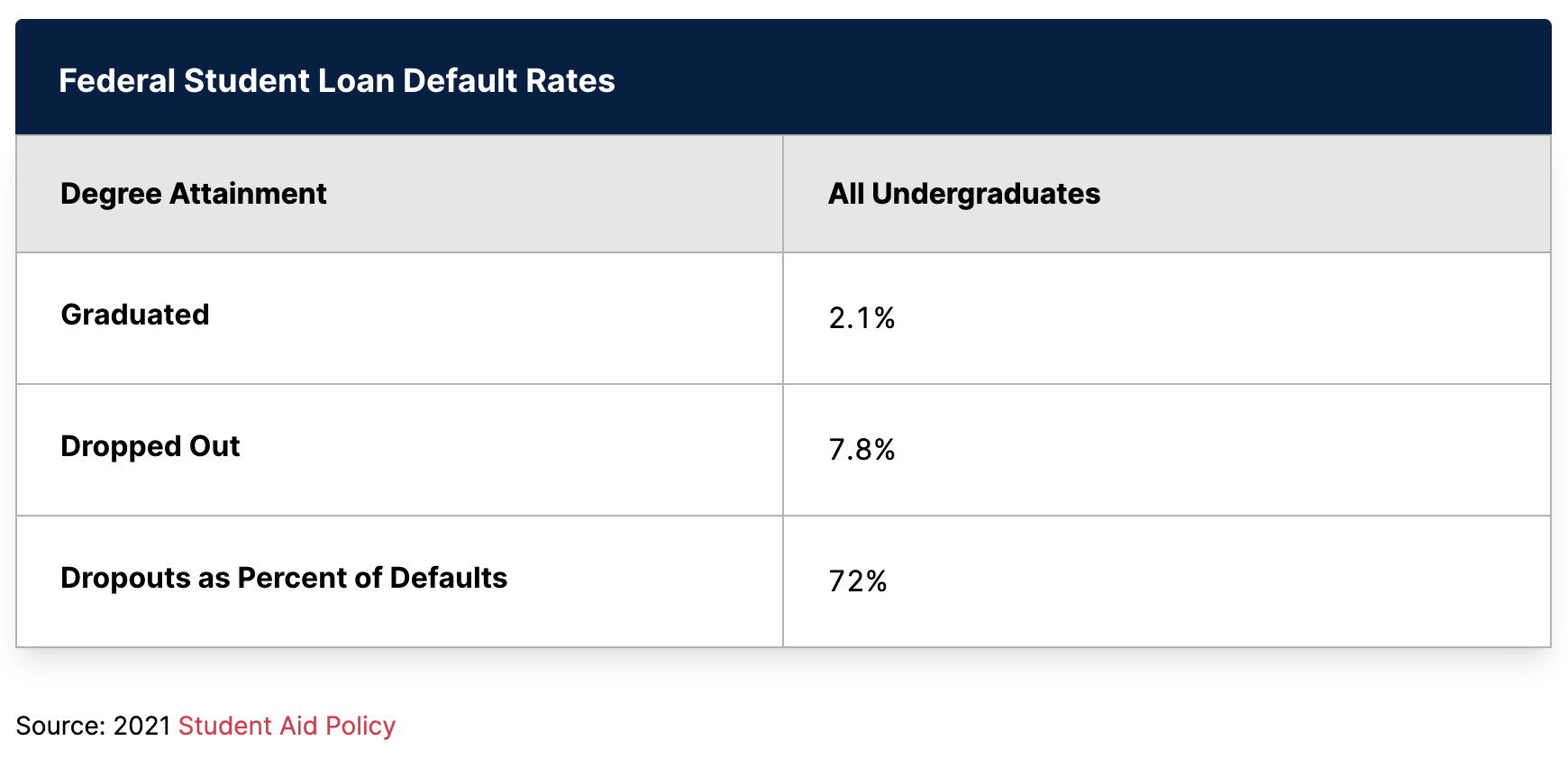
Why Gen Z college students feel more financially insecure than ever
This story was produced by BestColleges and reviewed and distributed by Stacker Media.
Why Gen Z college students feel more financially insecure than ever
Gen Z, also known as the zombie generation, worries about a stagnating economy. In addition to inflation, the job market, growing student loan debt, housing insecurity — the list goes on.
According to a study by BestColleges, more than three-quarters of the U.S. college students who responded say that inflation is bad or very bad. Nearly half say that high-paying jobs are hard to find. And many respondents say they will consider a job outside their chosen field if it offers higher pay.
Unfortunately, this data is not surprising.
With so many economic factors to consider, Gen Z college students feel more financially insecure than ever. While there are some possible remedies for those who want to consider them, the uphill battle is undeniable.
Factors Contributing to Financial Insecurity Among Gen Z College Students
Key factors that contribute to financial insecurity among Gen Z college students include:
- Rising college costs. The most expensive U.S. college will charge $95,000 this fall. Even though colleges offer financial aid at a discount on the sticker price, the high-cost, high-aid model contributes to sticker shock. Additionally, the average one-year cost of out-of-state tuition for a public college has risen to almost $30,000, making college much less affordable.
- High inflation. College costs include more than just tuition and fees. Because of rising living expenses — such as housing, food, and transportation — students feel the weight and impact of inflation. Food and fuel cost more than they did in the past. Limited housing availability has caused housing and rent prices to remain elevated. Rising healthcare costs aren't included in college bills, and current college students face housing and food insecurity, with 23% of undergraduate students going hungry or having limited access to quality food options.
- Growing student loan debt. The gap between college costs and financial aid is growing, especially for Black students. This gap forces students and their families to borrow more or to shift enrollment to lower-cost colleges. As a result, the increases in student loan debt yield greater financial stress.
- Greater economic uncertainty. Many aspects of the economy are in flux. Will the Federal Reserve cut interest rates this year, and by how much? Unemployment is low, but the job market is thin for jobs that pay six figures and up. Artificial intelligence (AI) may impact white-collar jobs, affecting job security and higher-paying jobs after graduation. Wages have been stagnant, with limited pay increases falling short of inflation. Many are forced to pick up part-time jobs and gig work to fill the gaps.
These issues are enough to manage on their own. As Gen Z students continue their college journey, these issues also begin to impact academic performance and mental health.
Impact of Financial Insecurity on Academic Success and Mental Well-Being
Graduating with student loan debt can delay major life events, including getting married or saving for retirement.
Whether the college graduate had some student loan debt depends on the cumulative amount borrowed in federal and private student loans.
In addition, 82% of bachelor's degree recipients who had no student loan debt as of 2012 felt that college was worth the cost, compared with 70% of those with some student loan debt.

The Stress of Student Loan Debt
In 2021, an analysis based on the 2009 follow-up to the Beginning Postsecondary Students Longitudinal Study was conducted (see table above).
Among undergraduate students, college dropouts are almost four times more likely to default and represent almost three-quarters of the defaults.
Among students in bachelor's degree programs, college dropouts represent 97% of the defaults. Students who drop out of college have the debt but not the degree that can help them repay it.
College graduates with more debt are more likely to experience financial stress than those who do not have student loan debt.
Addressing Financial Insecurity Among Gen Z College Students
Several steps can be taken by colleges and students to address financial insecurity while they are enrolled in college:
- Financial literacy training could help you manage money instead of having your money manage you. As much as you may hate to hear this from nagging parents or loved ones, learning how to borrow smartly, budget, save, and invest can help lessen the impact of economic uncertainty you may experience.
- Live within your means while you're in school, so you don't have to live like a student after you graduate. Aim to borrow no more than your expected annual starting salary for your entire education. If your total debt is less than your annual income, you should be able to repay your student loans in 10 years or less.
- Colleges should take steps to reduce food and housing insecurity. This can include opening food pantries on campus, helping students apply for the Supplemental Nutrition Assistance Program (SNAP), letting other students donate their excess meal plan points, and providing free public transportation to all students.
- Short-term financial difficulties can be addressed through deferments and forbearances, such as economic hardship deferment and unemployment deferment. These temporarily suspend the repayment obligation, although interest may continue to accrue.
- Long-term financial difficulty can be addressed through extended repayment and income-driven repayment plans. Extended repayment plans reduce the monthly payment by stretching out the loan repayment terms. Income-driven repayment plans base the monthly student loan payments on the borrower's income and family size. This can make payments more affordable. However, if a student wants to attend a higher-cost college, they may have to use private loans, which don't offer income-driven repayment plans. Stretching out the repayment term can also increase the total interest paid over the life of the loans.
The list of worries for Gen Z college students is never-ending. From college costs to inflation, the job market, and the economy as a whole, they face a lot of uncertainty as they transition from college into the real world.
Gen Z has options to navigate these challenges, but their concerns are real and valid.



